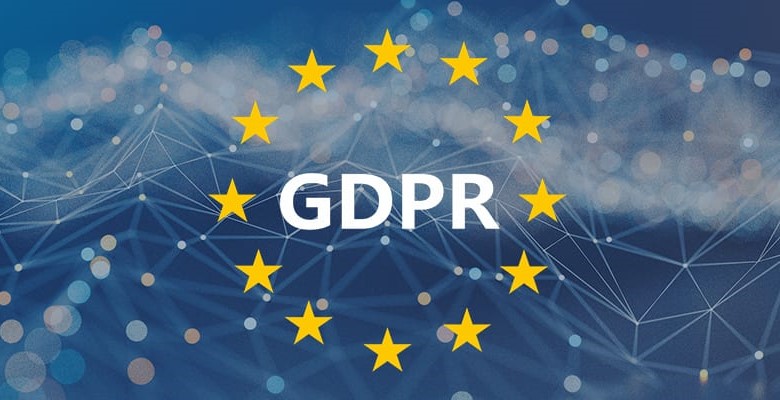GDPR Scope Size has no influence on a company’s GDPR compliance responsibilities. Because of its complexities and international roots, many small enterprises have either postponed or neglected their compliance duties entirely. However, due to the GDPR’s extraterritorial character, all organisations that sell products or services in the EU have unique duties for safeguarding and managing the personal data of any E.U. data subject.

Table of Contents
GDPR Has a Greater Impact Than IT
GDPR necessitates process and technological improvements across a wide range of functional domains. Human resources, marketing, and customer service are often the worst hit. And IT must assist each of these areas by implementing technological protections or acting as an adviser when application and data owners supervise modifications to outsourced or cloud applications.
GDPR has various implications for small enterprises in the United States, the most significant of which are the need to:
1.Be Aware of Your Data
Understanding where the impacted data is used, processed, and kept, including any third parties or other facilities, such as offshore tape storage, is a key first step in securing and controlling it. Data flow diagrams should be created and maintained to assist the organisation in determining which systems are under consideration. This is the necessary prelude to all others.
Data cannot be safeguarded until it is recognised. Furthermore, the GDPR expressly offers data subjects specific access rights to their data. They may use these against any corporation that has access to their personal information. Before a person may submit a claim with their country’s regulatory body, companies have 30 days to react.
Other information, in addition to schematics, should be gathered and kept. Each organisation should record what personal information is stored, where it comes from, who it’s shared with, what your company does with it, and any other facts relevant to its lifetime, such as projected destruction date, for every data subject personal information. Once the personal information has been discovered, your organisation must record its “lawful basis for processing.”
2. Conduct a Data Protection Impact Analysis (“DPIA”).
A DPIA is essential in order for the firm to detect and mitigate data security concerns. The DPIA is required to:
Document the processing’s nature, scope, and context.
Examine the processing’s need and proportionality.
Identify and evaluate data subject personal information threats.
Determine whether any extra protections are needed.
The DPIA process should be written and institutionalised in a company’s policies. Any procedural steps taken by the firm after the DPIA, such as corrective projects, should be recorded and kept on file to demonstrate the company’s efforts toward compliance.
3. Put in place technical safeguards
Following the DPIA, any standard measures that are not in place should be recorded and adopted as soon as possible to reduce the privacy risk. The following are examples of common technological controls that are often disregarded by small organisations yet are almost always required:
Management of Vulnerabilities and Patches
At-Rest Encryption
Authentication using Multiple Factors (MFA)
Monitoring of Critical Events
Risk Management for Vendors
While none of these are directly stated in the Act, Article 25 does state that “data protection by design and by default” is required. Many of the member states’ enforcement agencies have declared that failing to have the aforementioned technology and procedures in place is unjustifiable if the firm is handling the personal information of an E.U. data subject. As more data breaches are revealed and enforcement actions are brought, it is conceivable that these and other measures will become officially mandated.
4. Obtaining and Managing End-User Consent
Consent must be obtained and documented where it is the legal foundation for processing. Subjects must be able to provide precise, informed, and unambiguous consent. Because their permission might be changed or revoked at any moment, businesses need a system to maintain, monitor, and update consent records. Where feasible, these procedures should be automated to make it easier for data subjects to manage their own consent.
5. Documentation Updating and Maintenance
Finally, since the preceding processes are likely to take months to complete and execute, it is vital that businesses operate responsibly and in good faith. As firms manage GDPR compliance with day-to-day operations and other strategic goals, moving toward compliance and documenting efforts is critical to demonstrating best efforts. Documentation should only be relevant for the business environment, but it should at the very least contain the activities done, management decision-making, and corrective measures with anticipated timeliness and recorded progress toward the objectives.
What Should You Do Next?
The EU recognises that these regulations may be difficult for small firms. The law aims to make digital privacy a basic right. The European Union is committed to safeguarding people and developing public understanding about digital privacy and how businesses may use personal information.
Preparation and continuing compliance may be costly, but it has been shown that neglecting privacy standards may be deemed irresponsible, with even more severe consequences. GDPR’s many regulations have a one-of-a-kind impact on each organisation. It is advisable to get legal counsel for legal advice and explanations since the law is always being updated as it is implemented. Finally, completing information security and data privacy evaluations under the supervision of an attorney may give extra legal advantages if litigation is ever necessary.
Copy and paste this <iframe> into your site. It renders a lightweight card.
Preview loads from ?cta_embed=1 on this post.